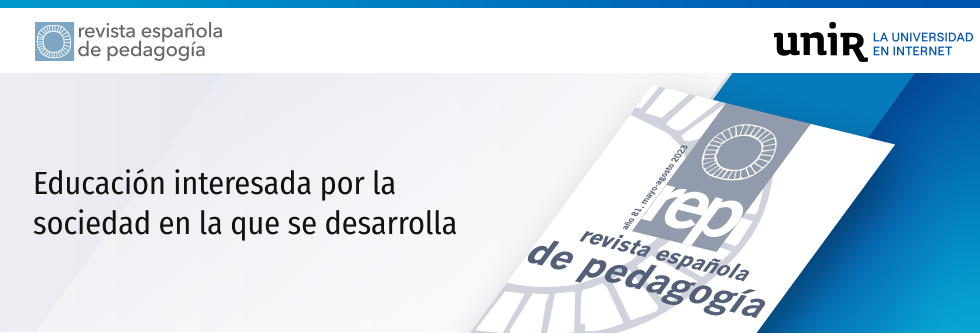Psychopedagogical roots of multiple intelligences
Abstract
The aim is to study the psychopedagogical roots of the Multiple Intelligences model. Then we analyse the data obtained in our empirical study carried out with 294 students (preschool and primary school levels).
In 1983 Gardner publishes his book Frames of Mind. The theory of Multiple Intelligences (MI), whose aim is to prove the existence of eight intelligences (linguistic, logical-mathematical, visualspatial, corporal-kinetic, musical, interpersonal, intrapersonal and naturalistic). Later, he publishes the Spectrum Project, based on the Multiple Intelligences Theory (Gardner et al, 1998 a, b and c). The aim of Spectrum is to design a procedure to evaluate the cognitive competence of children of early childhood. The psychopedagogical roots of Spectrum are those of the authors of the New School: Dewey, Montessori and Decroly. From the Spectrum, the evaluation of cognitive competence is centred on the individual and the classroom is a pedagogical laboratory where children are «learning by doing» (Dewey, 1899, 1906); work is organised in learning centres according to the interests and abilities of the students (Montessori, 1912); four main principles for education are highlighted: freedom, individualisation, activity and globalisation of teaching (Dewey, 1910; Decroly, 1929). The results show the existence of seven independent constructs that fit with six intelligences evaluated and established by Gardner (1983); and that the learning center is a good procedure to teach children the knowledge, skills and attitudes implicit in the different intelligences, participating in a cooperative way.
Key Words: intelligence, multiple intelligences, learning centres, cognitive competence.
Citación recomendada | Recommended citation
Ferrándiz, C.,
Prieto, M. D.,
Bermejo, M.,
&
Ferrando, M.
(2006)
.
Psychopedagogical roots of multiple intelligences.
Revista Española de Pedagogía, 64(233).
https://www.revistadepedagogia.org/rep/vol64/iss233/14
Licencia Creative Commons | Creative Commons License
Esta obra está bajo una licencia internacional Creative Commons Atribución-NoComercial 4.0.
This work is licensed under a Creative Commons Attribution-NonCommercial 4.0 International License
Palabras clave | Keywords
intelligence, multiple intelligences, learning centres, cognitive competence.






